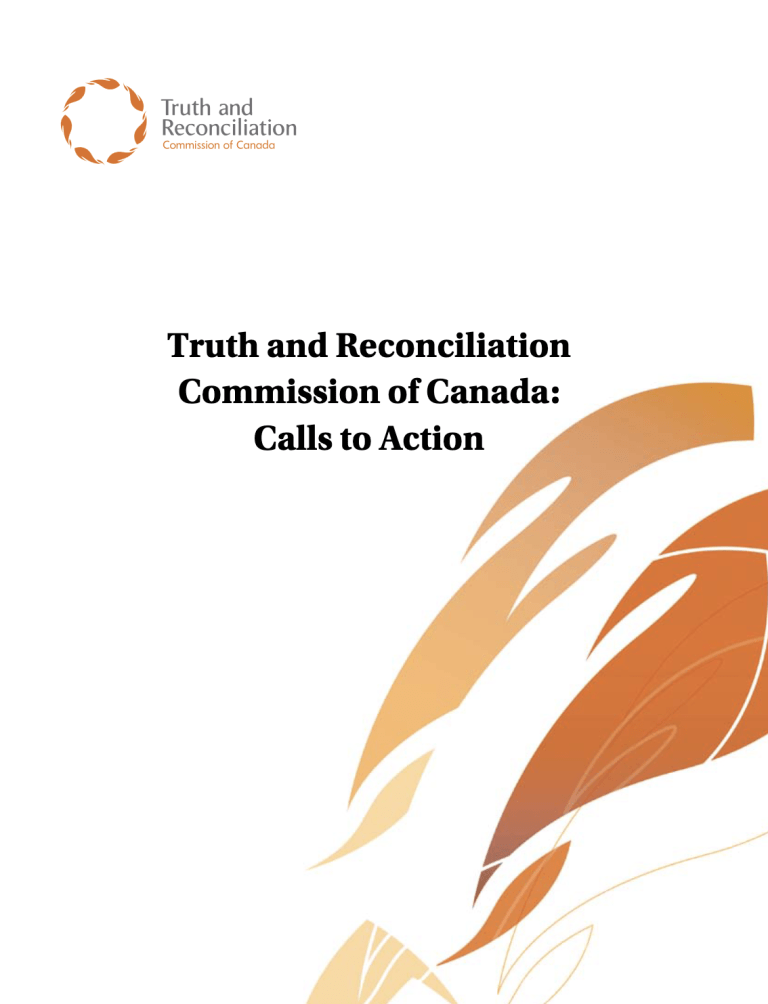59 search results
for
Public education and reconciliation
Reconciliation
National Council for Reconciliation
Recommendation 56: We call upon the prime minister of Canada to formally respond to the report of the National Council for Reconciliation by issuing an annual “State of Aboriginal Peoples” report, which would outline the government’s plans for advancing the cause of reconciliation.-
Category and theme:
Audience:
Groups affected:
Location of recommendation:
Reconciliation
Professional development and training for public servants
Recommendation 57: We call upon federal, provincial, territorial, and municipal governments to provide education to public servants on the history of Aboriginal peoples, including the history and legacy of residential schools, the United Nations Declaration on the Rights of Indigenous Peoples, Treaties and Aboriginal rights, Indigenous law, and Aboriginal–Crown relations. This will require skills based training in intercultural competency, conflict resolution, human rights, and anti-racism.-
Category and theme:
Audience:
Groups affected:
Location of recommendation:
Reconciliation
Church apologies and reconciliation
Recommendation 58: We call upon the Pope to issue an apology to Survivors, their families, and communities for the Roman Catholic Church’s role in the spiritual, cultural, emotional, physical, and sexual abuse of First Nations, Inuit, and Métis children in Catholic-run residential schools. We call for that apology to be similar to the 2010 apology issued to Irish victims of abuse and to occur within one year of the issuing of this Report and to be delivered by the Pope in Canada.-
Category and theme:
Audience:
Groups affected:
Location of recommendation:
Reconciliation
Church apologies and reconciliation
Recommendation 59: We call upon church parties to the Settlement Agreement to develop ongoing education strategies to ensure that their respective congregations learn about their church’s role in colonization, the history and legacy of residential schools, and why apologies to former residential school students, their families, and communities were necessary.-
Category and theme:
Audience:
Groups affected:
Location of recommendation:
Reconciliation
Church apologies and reconciliation
Recommendation 60: We call upon leaders of the church parties to the Settlement Agreement and all other faiths, in collaboration with Indigenous spiritual leaders, Survivors, schools of theology, seminaries, and other religious training centres, to develop and teach curriculum for all student clergy, and all clergy and staff who work in Aboriginal communities, on the need to respect Indigenous spirituality in its own right, the history and legacy of residential schools and the roles of the church parties in that system, the history and legacy of religious conflict in Aboriginal families and communities, and the responsibility that churches have to mitigate such conflicts and prevent spiritual violence.-
Category and theme:
Audience:
Groups affected:
Location of recommendation:
Reconciliation
Church apologies and reconciliation
Recommendation 61: We call upon church parties to the Settlement Agreement, in collaboration with Survivors and representatives of Aboriginal organizations, to establish permanent funding to Aboriginal people for:- Community-controlled healing and reconciliation projects.
- Community-controlled culture- and language revitalization projects.
- Community-controlled education and relationship-building projects. iv. Regional dialogues for Indigenous spiritual leaders and youth to discuss Indigenous spirituality, self-determination, and reconciliation.
-
Category and theme:
Audience:
Groups affected:
Location of recommendation:
Reconciliation
Education for reconciliation
Recommendation 62: We call upon the federal, provincial, and territorial governments, in consultation and collaboration with Survivors, Aboriginal peoples, and educators, to:- Make age-appropriate curriculum on residential schools, Treaties, and Aboriginal peoples’ historical and contemporary contributions to Canada a mandatory education requirement for Kindergarten to Grade Twelve students.
- Provide the necessary funding to post-secondary institutions to educate teachers on how to integrate Indigenous knowledge and teaching methods into classrooms.
- Provide the necessary funding to Aboriginal schools to utilize Indigenous knowledge and teaching methods in classrooms.
- Establish senior-level positions in government at the assistant deputy minister level or higher dedicated to Aboriginal content in education.
-
Category and theme:
Audience:
Groups affected:
Location of recommendation:
Reconciliation
Education for reconciliation
Recommendation 63: We call upon the Council of Ministers of Education, Canada to maintain an annual commitment to Aboriginal education issues, including:- Developing and implementing Kindergarten to Grade Twelve curriculum and learning resources on Aboriginal peoples in Canadian history, and the history and legacy of residential schools.
- Sharing information and best practices on teaching curriculum related to residential schools and Aboriginal history.
- Building student capacity for intercultural understanding, empathy, and mutual respect. iv. Identifying teacher-training needs relating to the above.
-
Category and theme:
Groups affected:
Location of recommendation:
Reconciliation
Education for reconciliation
Recommendation 64: We call upon all levels of government that provide public funds to denominational schools to require such schools to provide an education on comparative religious studies, which must include a segment on Aboriginal spiritual beliefs and practices developed in collaboration with Aboriginal Elders.-
Category and theme:
Audience:
Groups affected:
Location of recommendation:
Reconciliation
Education for reconciliation
Recommendation 65: We call upon the federal government, through the Social Sciences and Humanities Research Council, and in collaboration with Aboriginal peoples, post-secondary institutions and educators, and the National Centre for Truth and Reconciliation and its partner institutions, to establish a national research program with multi-year funding to advance understanding of reconciliation.-
Category and theme:
Audience:
Groups affected:
Location of recommendation:
